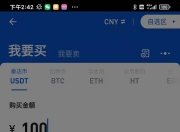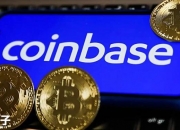数字经济已经成为我国重要的战略方向。《中华人民共和国十四五规划和2035远景目标纲要》提出,要加快推动数字产业化,推进产业数字化转型。《“十四五”数字经济发展规划》中提到,大力推进产业数字化转型和加快推动数字产业化。各部委和地方政府也发布了相关的政策和要求。2022年12月13日至14日,由中关村金融科技产业发展联盟、中关村互联网金融研究院、中国互联网金融三十人论坛主办的“2023第十届中关村金融科技论坛年会暨2022‘光大杯’中关村番钛客金融科技国际创新大赛颁奖典礼”在京举办,对当前的数字经济发展新趋势进行了深入讨论。
The 14th Plan of the People's Republic of China and the Outline of Vision 2035 propose to accelerate the process of digitalization and the transformation of the industry. The 14th Plan of Digital Economic Development refers to the vigorous promotion of the digital transformation of the industry and the acceleration of the digitalization process. Relevant policies and requirements have also been issued by various ministries and local governments. The current trends in digital economic development were discussed in depth in Kyoto from 13 to 14 December 2022, organized by the China-Korea Federation for the Development of Financial Science and Technology, the China-Korea Internet-based Financial Research Institute and the 30-member Forum on Internet Finance of China.
中国电子技术标准研究院研究部主任李鸣指出,当前数字产业化和产业数字化成为我国数字经济发展中的重点任务。数字产业化是推动数字技术形成一定规模的产业,从而支撑产业数字化。所谓的产业数字化就是让更多的产业使用上数字化的技术,包括当前的工业互联网、金融、科技监管科技等产业中使用数字化技术,加速推动整个产业的数字化转型。
The Director of Research at China’s Institute of E-Technology Research said that digital industrialization and digital industrialization are now a priority in the country’s digital economy. Digital industrialization is the driving force behind the digitalization of industries on a certain scale. The so-called industrial digitization is the use of digital technologies in more industries, including current industries such as the industrial Internet, finance, and science and technology regulation, to accelerate the digital transformation of entire industries.
李鸣表示,当前新一代信息技术的融合架构正在形成,包括物联网技术对数据的采集,大数据技术对数据的处理,人工智能技术对数据的利用以及与预算,对数据的承载和资源的调度,5G对提供的通讯的支撑,还有区块链提供的可信共识防篡改的机制。web1.0是只读网络,平台控制内容;web2.0是可交互网络,平台依然控制内容。而当前火热的“元宇宙”概念,则是基于Web3.0技术体系和运作机制支撑下的可信数字化价值交互网络,是以区块链为核心的Web3.0数字新生态。而基于web3.0的技术支撑下,能够明确相应的资产能够保障收益的公平,保护用户的数据主权,保护用户的隐私。
Li Ming said that the integration architecture of the new generation of information technologies was being developed, including data collection for physical networking technology, data processing for large data technology, the use of artificial intelligence technology for data and budget, the movement of data and resources for data, the support of 5G for the communication provided, and the mechanisms for credible consensus-building against tampering provided by block chains. Web1.0 was a read-only network, with platform control; web 2.0 was an interactive network, with platforms still controlling content. The current hot concept of “metacos” was based on a credible digital value interactive network supported by Web3.0 technical systems and operational mechanisms, and was a new Web3.0 digital ecology centred on block chains.
但李鸣同时指出,现阶段的元宇宙仍存在技术迭代还不足、版权保护意识薄弱、内容比较单一、协作组织形态不成熟、成本较高等问题和挑战。对于元宇宙产业发展,李鸣提出了四点建议。一是要统一产业共识:加强元宇宙技术体系、服务体系、经济体系和治理体系的研究,明确元宇宙的技术发展路径,探索元宇宙的基础理论,形成元宇宙的产业标准。二是探索技术集成的方法:破解分布式身份认证,跨链生态互联互通,数字资产流通、数字内容治理等焦点问题。三是创新应用场景和商业模式:推动数字环境下的智能制造、信息消费、智慧城市、文化旅游等领域的应用创新。四是加强科技伦理治理研究:制定金融服务、管理内容、内容和资产合规监管、数字版权保护等一系列的措施,保护用户在线权益。
Li Ming noted, however, that at this stage the meta-cosm still suffers from technical gaps, weak copyright protection awareness, more homogenous content, immature forms of collaborative organization, and high costs. Li made four recommendations for the development of the meta-cosm industry. First, to unify industrial consensus: to strengthen research on meta-cosm technological systems, service systems, economic systems and governance systems, to clarify the technological development path of meta-cosmos, to explore the fundamental theory of meta-cosm, and to develop industrial standards for meta-cosm. Second, to explore ways to integrate technology: decoup distributional identity certification, cross-chain ecological connectivity, digital asset flows, digital content governance, etc. Third, innovative applications and business models: to promote intellectual manufacturing in a digital environment, information consumption, smart cities, cultural tourism, etc. Fourth, to strengthen research on ethical science and technology governance: to develop financial services, regulatory content and asset compliance, digital copyright protection, etc., and to protect users'online interests.
注册有任何问题请添加 微信:MVIP619 拉你进入群

打开微信扫一扫
添加客服
进入交流群





















发表评论